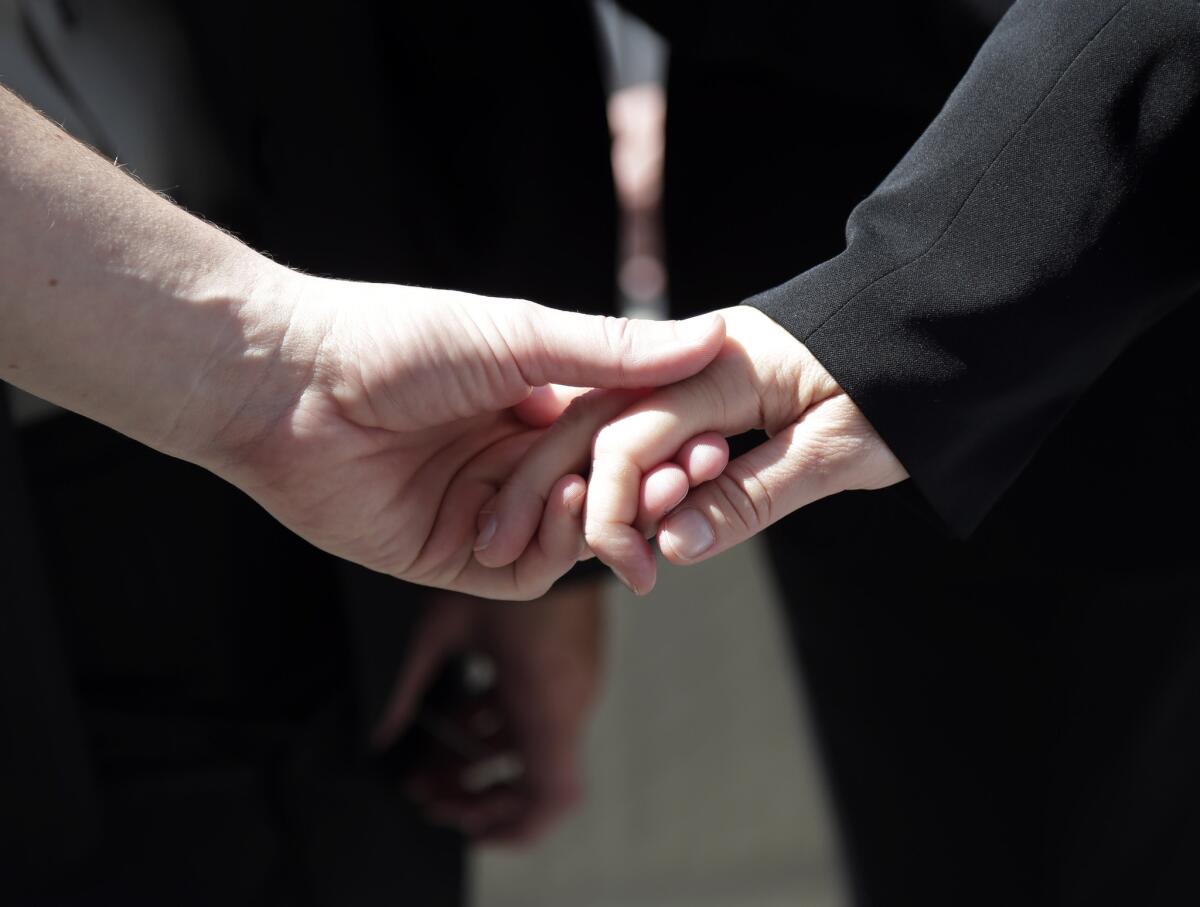Opinion: Gay marriage proves just too modern for judge in Louisiana case

The legal juggernaut of challenges to prohibitions on same-sex marriage continued Monday with oral arguments in the U.S. 9th Circuit Court of Appeals over bans in Hawaii, Idaho and Nevada. Last week two judicial decisions were issued, one by a federal district judge upholding Louisiana’s ban and another by the U.S. 7th Circuit Court of Appeals striking down bans in Indiana and Wisconsin.
The latter opinion has received more attention, partly because it was written (and amazingly quickly) by Judge Richard Posner, the prolific legal theorist who is probably the most famous federal judge not on the Supreme Court. The Posner opinion is eminently quotable. (Here’s a sample: “Heterosexuals get drunk and pregnant, producing unwanted children; their reward is to be allowed to marry. Homosexual couples do not produce unwanted children; their reward is to be denied the right to marry. Go figure.”)
But U.S. District Judge Martin Feldman’s opinion upholding the Louisiana Constitution’s ban on same-sex marriage is also worth reading (though it contains a howler: the assertion that the 14th Amendment “expressly condemns racial discrimination.”)
Disagreeing with other judges, Feldman rejects the notion that state bans on same-sex marriage are undermined by the Supreme Court’s decision last year striking down a section of the federal Defense of Marriage Act, which defined marriage for federal purposes as the union of one man and one woman.
He can do this plausibly because, as I have written before, Justice Anthony M. Kennedy’s majority opinion in the DOMA case was two-faced. You can read it as primarily an affirmation of the states’ right to define marriage, or as a rejection of laws that demean gay couples.
I was also struck by the emphasis Feldman put on how recent the push for same-sex marriage is. Citing a Supreme Court decision saying that the due process clause protects rights that are “deeply rooted in this nation’s history and tradition,” Feldman said same-sex marriage was “nonexistent and even inconceivable until very recently.”
This echoed a comment by Justice Samuel A. Alito Jr. during oral arguments in the challenge to California’s Proposition 8 (which the court rebuffed on the ground that supporters of the proposition lacked standing to appeal a lower court ruling against it). “Traditional marriage has been around for thousands of years,” Alito said. “ Same-sex marriage is very new . . . newer than cell phones or the Internet.”
The problem for Feldman and Alito is that the revolution in support of same-sex marriage can’t be measured in regular time. And it is that lightning-fast social revolution that makes Feldman’s opinion read like a museum piece and Posner’s like a judicial version of “Modern Family.”
That same revolution, I suspect, will induce Kennedy to abandon the ambiguity of his DOMA opinion once the Supreme Court confronts the issue squarely.
Follow Michael McGough on Twitter @MichaelMcGough3
More to Read
A cure for the common opinion
Get thought-provoking perspectives with our weekly newsletter.
You may occasionally receive promotional content from the Los Angeles Times.











